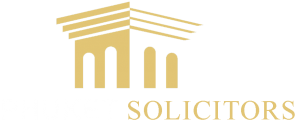Registering a company under the Thailand Board of Investment is an excellent way to take advantage of tax and non-tax incentives. The BOI is a government organization that aims to promote foreign investments.
Typically, companies seeking BOI promotion will have to attend several interviews with officials in various departments and locations. Additionally, they will have to follow a number of legal and accounting issues.
Legal entity
There are several types of legal entities that a company can operate as, depending on the nature of its business. For example, a private limited company has 2-200 shareholders, is regulated by the union government and has limited liability. It is also possible to form a one-person company. The choice of a legal entity depends on the business’ financial objective. For example, a Great Service Group that provides information technology services wants to maximize its current income, while a Fast Product Company that makes a mobile application with global market potential has more of an eye on growth.
The Board of Investment is the principal investment promotion agency in Thailand and offers a package of tax incentives and non-tax privileges for activities that meet certain criteria. It also eases foreign equity restrictions on manufacturing activities and waives restrictions on land ownership by foreign entities. In addition, the agency maintains a regular government-to-government forum to discuss trade and investment issues.
Shareholders
The Office of the Thailand Board of Investment (BOI) is a government agency under the Prime Minister’s office that promotes valuable investments, both inbound and outbound. It also offers a range of tax-based and non-tax incentives to investors. These include corporate income tax exemptions, tariff reductions or exemptions on imported machinery and equipment used in production for export, and conditional permission to own land.
The BOI has set its sights on developing the country’s competitiveness and promoting high-technology industries such as digital technology, smart agriculture and biotechnology, aviation and logistics, automation and robotics, and medical and wellness tourism. It also has plans to upgrade the nation’s infrastructure.
The BOI also provides protection from expropriation without compensation to foreign investors. The law also guarantees that the government will not nationalize the operations of companies it promotes. However, these rights do not apply to investments made by companies with majority Thai ownership. This is because the Foreign Business Act restricts most investment activity to locals.
Registered capital
The registered capital of a company is the primary funding used to cover initial expenses until the business is self-sustaining. Investors may contribute registered capital in cash or in kind. Non-monetary property, such as intellectual property or equipment, is considered part of the registered capital and must be properly valued and declared.
The Board of Investment (BOI) in Thailand helps foreign businesses establish their operations in the country by providing tax and non-tax incentives. Its investment promotion policy focuses on industrial and agricultural sectors that are essential to the country’s economy. The BOI also offers support in navigating Thai regulations and provides investment incentives for businesses of all sizes.
However, investors must be aware of the potential risks associated with registering a business in Thailand. For example, foreign investors may face difficulties in interpreting the Thai business law and may not be fully informed of the legal requirements. This may lead to problems with the registration process, and it is important to seek legal advice from a trusted business advisor.
Taxation
The Board of Investment promotes foreign investment in a list of activities with tax and non-tax incentives. It also waives foreign equity restrictions and foreign land ownership restrictions. These incentives are designed to boost competitiveness and increase productivity. The BOI has offices around the world to provide assistance and answer questions.
The law also includes penalties for corruption, including bribery and embezzlement. While Thailand is ranked relatively high on Transparency International’s Corruption Perceptions Index, bribery and other corrupt practices continue to be problematic. Government officers often have discretion over the granting of licenses and other government approvals, creating opportunities for corruption.
The new BOI scheme is aimed at supporting a “new economy” that focuses on innovation, competitiveness, and inclusivity. Its goal is to boost economic growth and lead the country into a global value chain. The new announcements will apply to all new projects, as well as existing ones that have not exercised their tax privileges.


